Search
Search Results

Article
The Railways in the British Industrial Revolution
The railways were perhaps the most visible element of the Industrial Revolution for many. Trains powered by steam engines carried goods and people faster than ever before and reached new destinations, connecting businesses to new markets...
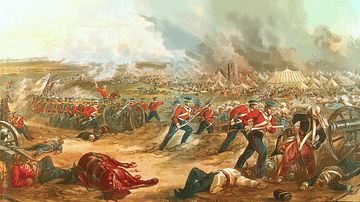
Article
Battle of Ferozeshah
The Battle of Ferozeshah (aka Forezeshur) on 21-22 December 1845 was one of four major battles during the First Anglo-Sikh War (1845-6) between the Sikh Empire and the British East India Company (EIC). The British relentlessly attacked the...
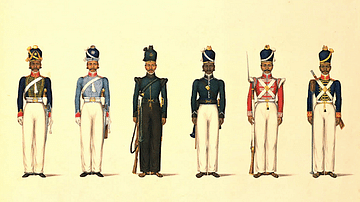
Definition
Sepoy
A sepoy was an Indian soldier in the armies of various states and European trading companies in the Indian subcontinent and then, from the second half of the 19th century, in the British Indian Army. Recruited from many different population...
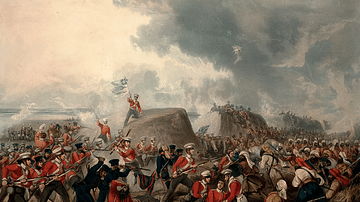
Article
Battle of Sobraon
The Battle of Sobraon on 10 February 1846 was the last of four major victories for the British East India Company (EIC) against the Sikh Empire during the First Anglo-Sikh War (1845-6). Lieutenant-General Sir Hugh Gough (1779-1869) commanded...
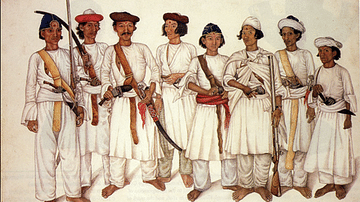
Definition
Anglo-Nepalese War
The Anglo-Nepalese War (aka Gurkha War, 1814-16) saw the British East India Company (EIC) lose several battles against Nepalese Gurkhas before finally securing victory in a hard-fought campaign that, for the first time, extended EIC control...
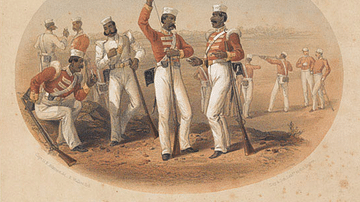
Article
Battle of Aliwal
The Battle of Aliwal on 28 January 1846 saw the British East India Company (EIC) defeat the Sikh Empire. One of four major battles during the First Anglo-Sikh War (1845-6), Aliwal was a decisive victory where the EIC's Bengal Lancers cavalry...

Article
Coal Mining in the British Industrial Revolution
Coal mining boomed during the British Industrial Revolution as it provided fuel for steam engines of all kinds in factories, transport, and agriculture. Draining flooded mines to extract more coal was the reason the steam engine was invented...

Collection
The Civilizations of the Near East, The People of Mesopotamia
This collection focuses on providing supplementary materials to students who want to enhance their school history studies and to teachers who want a more concise coverage of each lesson that they deliver. This chapter examines the economic...

Article
The Coronation Ceremony of the British Monarchy
The coronation ceremony of the British monarchy as we know it today involves many elements that have been a part of the pageantry ever since the 11th century. Such features of the ceremony carried out in Westminster Abbey since 1066 have...
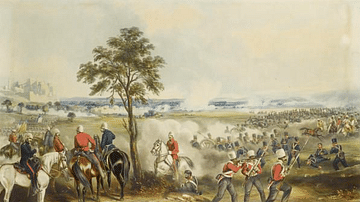
Definition
Second Anglo-Sikh War
The Second Anglo-Sikh War (1848-9) once again saw the British East India Company defeat the Sikh Empire in northern India. The war, which started off as a rebellion against British colonial rule, included the high-casualty Battle of Chillianwala...